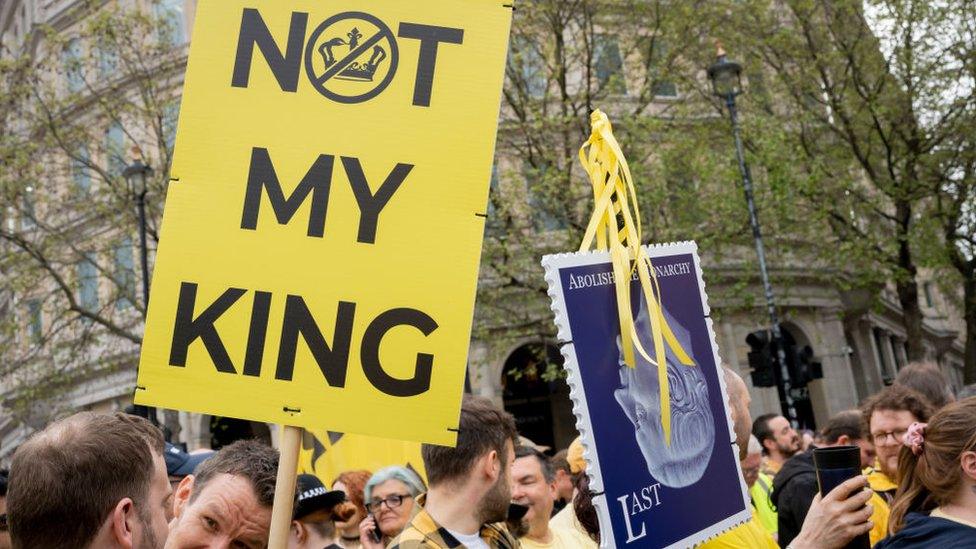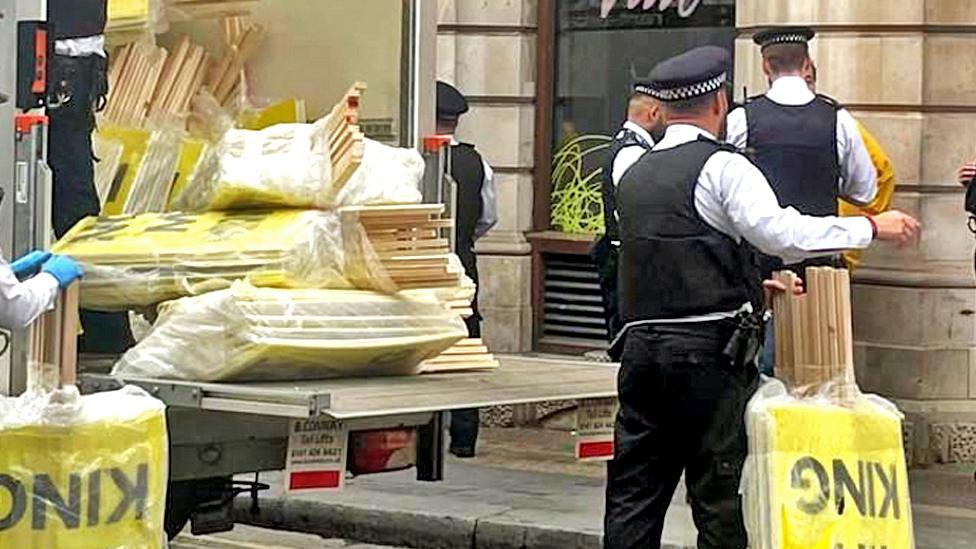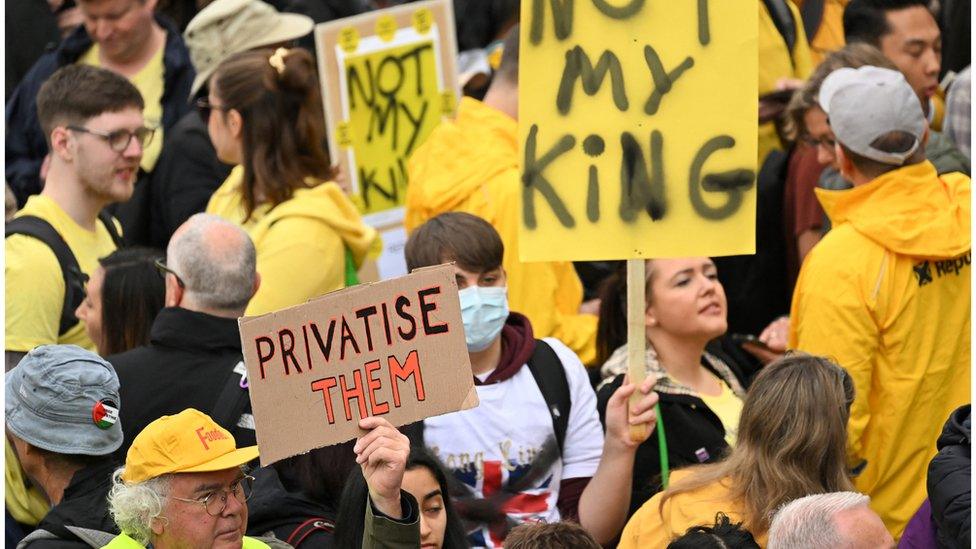Chris Mason: Debate around protest law is far from over
- Published

A new law about protests collides with a global event that was always going to attract protesters.
The government insists the police have operational independence.
In other words, who they arrest is their business.
But the police decide who they arrest on the basis of the laws passed by politicians.
What happened at the Coronation was an ever-present tension in a democracy - but with a twist.
The tension between the right to protest and minimising disruption.
The twist is the Public Order Act 2023, a law that only came into effect a matter of days before.
And a law that was passed primarily with climate protesters in its sights, who have taken to gluing themselves to roads and padlocking themselves to this, that and the other.
The police make arrests and then make apologies, and lawmakers (ie MPs) are asked if what we are seeing here is the law of unintended consequences.
Ministers say they are committed to the new law.
And while Labour opposed it when it was making its way through Parliament, they are now equivocal.
I asked Sir Keir Starmer about it and he told me it was "early days" for the legislation.
Perhaps, he said, there could be better guidance issued to the police.
Labour clearly don't want to be seen to be on the side of Just Stop Oil and Extinction Rebellion.
Labour sources attempt to explain away how the party has gone from outright opposition to a more nuanced position by arguing they are not going to "presumptuously" set out in advance every single law they might repeal were they to win the next general election.
And tweaking it, rather than scrapping it, is their current position.
The SNP and the Green Party are strongly opposed to the Act, and the Liberal Democrats say it needs looking at again.
So, is there any prospect of that?
In the short term, the argument is far from over.
The chairwoman of the Home Affairs Select Committee will use a meeting of the committee on Wednesday to suggest it takes a look at the policing of anti-monarchy protesters at the Coronation.
Labour MP Dame Diana Johnson hopes to persuade colleagues on the cross-party committee that it should invite the police, the campaign group Republic and lawyers to Parliament to examine what happened on Saturday - and what might need to change.
Such a hearing could happen as soon as next Wednesday.
The tension, and the twist, remain unresolved.
Related topics
- Published9 May 2023

- Published9 May 2023

- Published6 May 2023
